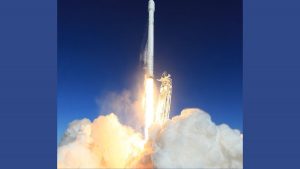Ukraine war: What would Russian success mean for Western security?
President Vladimir Putin might have hoped for a swift and decisive invasion of Ukraine; instead, a year on, Russia has paid a huge price for his imperial ambition.
However, time is a powerful ally for Mr Putin, and victory could still be secured.
What would some form of Russian success mean for Western security?
Putin’s frustration at Russian military incompetence will be tempered by knowing this is a David vs Goliath battle, in which Russia should prevail.
Notwithstanding Western support – upon which Ukraine is utterly dependent – Putin will know that precision weapons have a finite supply, are not easily replaced, and that Western cohesion is fragile.
Further, NATO has no mandate, and Western nations have no appetite, to commit combatants to this conflict.
Time is Putin’s friend, and the longer the war continues, Russia regenerates as the West wearies.
Ukraine will struggle to expel all Russian forces, so some form of victory for Russia – however unthinkable by the West – seems inevitable.
Emboldened and inspired, Putin’s Russia would present an existential threat to its westerly neighbours.
Russia’s grip around Belarus would tighten, and the Baltic states of Estonia, Lithuania and Latvia would be vulnerable – could or would NATO resist, given the risk of escalation?
Further, a new “axis of evil” – China, Russia, North Korea and Iran – would gain traction as an ideological counter to NATO.
Defence spending is an insurance premium against an uncertain future – Putin’s invasion demonstrates the West can no longer afford to be complacent about defence, and the Cold War Peace Dividend has left significant gaps in our collective military capability.
Read more:
One year of war: This is how many civilians have lost their lives
The war in Ukraine is of a kind the world has never seen before
Rishi Sunak leads minute’s silence as UK shows solidarity with Ukraine on war anniversary
Western technology has proven decisive, but precision weapons are difficult to produce, expensive to procure and with long lead times to replace.
Larger stockpiles, a greater commonality between allies, and a defence industrial strategy able to respond swiftly to changing demand, are all viable options, but at what cost?
And what is the West’s off-ramp from Ukraine, or is the West now committed to a conflict it cannot afford to lose?
NATO/Western Air Power would be decisive in this conflict, so is it inevitable that in time the West will be obliged to commit fighter pilot combatants to bring the war to an end, despite the risks?
One year on, the Ukraine conflict has evolved from a strategic Russian failure into a robust and brutal challenge to the established world order.
Ukraine has survived so far – perhaps even turned the tide – but that will be of little consequence should the international community not see the conflict through – whatever it takes.




